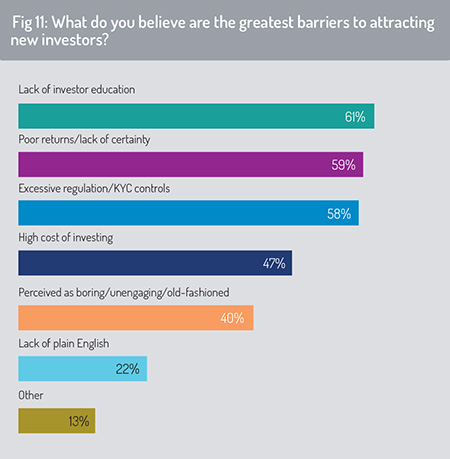Weekly Task - Topic 6

Company culture plays a huge role in an organization's success. The right organizational culture can help a company attract and retain top talent. It can also improve employee engagement and help the company gain a competitive edge in the market. However, you may ask why it is important and what it actually is. A good company culture goes beyond a vibrant office and fun team-building events; it requires deliberate nurturing to create a positive and productive environment (Shmidt, 2024).
In addition, one may wonder why corporate culture matters. This is due to the fact that a strong corporate culture is your best tool for problem-solving. The culture of your business has the ability to revitalize your employees and spur greater levels of engagement, productivity, and creativity. The ripple effect may save recruitment costs, increase staff retention, and above all, build a reputation that sets you apart from your rivals (Wong, 2023).
Company culture is the creation of a work environment that reflects an organization's values and empowers its team, whether it's developing an existing culture or building it from scratch. {219 words}
Since its 2010 introduction, WhatsApp has grown
significantly in user base, with over 450 million users by 2014. Facebook was
concerned about this because of its quick growth in popularity; at the time, it
had 1.2 billion users, a number that is not far off from WhatsApp. Following the failure of Messenger beating WhatsApp, an app that tried
to imitate WhatsApp, Facebook made the decision to purchase WhatsApp for a sum
of 19 billion dollars (Edwards, 2014).
In my opinion, 19 billion USD is a huge amount during that
time and Facebook might have overpaid for it. However, due to the success of
WhatsApp currently, I think otherwise. Mark Zuckerburg saw the potential in the
messaging app from the user growth. “If we can do a pretty good job of
helping WhatsApp to grow, it’s going to be a huge business” Mark Zuckerburg
quoted (Cook, 2014). Furthermore, had Mark Zuckerburg not made that purchase, Google would
have, and Facebook would have faced difficulties with messaging apps (Constine, 2015).
Last but not least, Mark Zuckerburg was right about the quote before,
in 2014 WhatsApp had 450 million users but currently in 2024, the unique users
of WhatsApp reached nearly 3 billion (Ceci, 2024). This amount will
increase further in the future with more features like cross-platform
messaging. In conclusion, Facebook did not overpay for WhatsApp in my opinion. {300 words}

Figure 2 Barriers to bringing investors (Latham, 2020).
One of the main problems from the survey is poor returns, which 59% of respondents agree on as that would seem unappealing to investors, which is due to entrepreneurs under-evaluating their ambitious business plan, penny-pinching every dime they could obtain. The lack of certainty is also accounted within the 59%, as some businesses tend to hide certain regulations that would appear unfavorable to the investor. However, the investors being unaware of the hidden risks would shatter any trust that has been established later on when it is uncovered, which would tarnish the reputation of the entrepreneur (Rassolli, 2021).
Another notable problem with 47% of them agreeing is the high cost of investing, as many investors start small and have limited capital available to invest. Therefore, entrepreneurs should break full shares into fractional ones, which are still considered partial shares of the company and the investors would enjoy the same amount of privileges and risk on their shoulders (Rassolli, 2021). {208 words}
Eisenmann, T. (2021, September 17). Why start-ups fail. Harvard Business Review. https://hbr.org/2021/05/why-start-ups-fail
Moyer, K. (2021). How Patients' Culture Influences Health Care. Rendia. https://rendia.com/resources/insights/culture
Latham, M. (2020, March 23). Challenges in attracting new investors. Funds Europe. https://www.funds-europe.com/challenges-in-attracting-new-investors
Rassolli, M. (2021, September 6). 6 Common Challenges Faced By New Investors And How to Face Them. TrendScout UK. https://www.trendscoutuk.com/6-common-challenges-faced-by-new-investors-and-how-to-face-them
Ter, M. (2021, July 11). 5 reasons why investors aren’t funding your business. https://www.linkedin.com/pulse/5-reasons-why-investors-arent-funding-your-business-marene-ter
Shmidt, I. (2024, February 20). How to build a strong corporate culture in five steps. Forbes. https://www.forbes.com/sites/forbesbusinesscouncil/2022/12/22/how-to-build-a-strong-corporate-culture-in-five-steps/?sh=7c948fed5799
Wong, B. (2023, August 15). What is company culture? Definition & Development Strategies. Forbes Advisor. https://www.forbes.com/advisor/business/company-culture/
Masigan, A. J. (2023, April 4). The real reason why Facebook bought WhatsApp. Philstar.com. https://www.philstar.com/2023/04/05/2256935/real-reason-why-facebook-bought-whatsapp
Edwards, J. (2014, February 19). Why Facebook had no choice but to pay $19 billion for WhatsApp. Business Insider. https://www.businessinsider.com/why-facebook-paid-19-billion-for-whatsapp-2014-2
Cook, J. (2014, September 6). These charts show why Facebook may not have overpaid for WhatsApp. GeekWire. https://www.geekwire.com/2014/charts-shows-facebook-may-overpaid-whatsapp/
Constine, J. (2015, February 19). A Year Later, $19 Billion for WhatsApp Doesn't Sound So Crazy. TechCrunch. https://techcrunch.com/2015/02/19/crazy-like-a-facebook-fox/
Ceci, L. (2024, April 4). Monthly global unique WhatsApp users 2020-2024. Statista. https://www.statista.com/statistics/1306022/whatsapp-global-unique-users/

Comments
Post a Comment